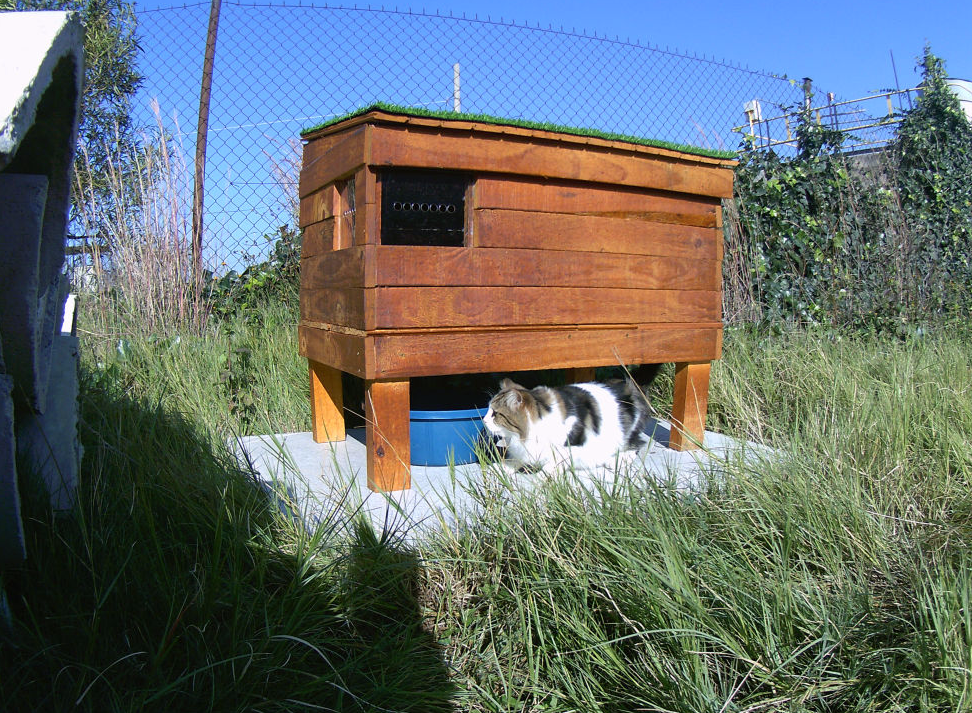Feral Management
Feral cats are the offspring of lost or abandoned pet cats who are not spayed or neutered. Females can reproduce two to three times a year and their kittens, if they survive, will become feral without any contact with people. Cats can become pregnant as early as 4-5 months of age, and the number of cats rapidly increases without the intervention by caring people. These cats are there through the fault of people who dump / abandon them and we owe it to them, our domestic cats and ourselves to find a humane solution.
Firstly, it is not wise to remove such cats. It has been found to be essential for the public institution where there are people and therefore food sources to maintain a colony of feral cats to keep rats and mice as well as snakes in check and to keep foreign cats out. (It is not advisable to try and control rodents and snakes with the aid of poison, since this has been shown to cause ecological and other problems and has a low success rate).
Secondly, please note that poisoning any animal or causing it to suffer is a contravention of the Animal Protection Act, and should therefore not be considered at any time.
We advise that the colony should be effectively managed, as follows:
There is a common misconception that feeding the feral cats will “Encourage” them. The cats should be fed regularly. This ensures that they are healthy enough to keep rodents, snakes and strange cats at bay. These cats are doing a job ridding your premises of pests and are therefore in fact working cats. If the cats are not fed, they will not go elsewhere, but will begin entering the buildings in search of food. Their condition will also deteriorate, eventually resulting in their inability to keep rodents and strange cats at bay. A well-fed cat is the best hunter. Regular feeding also facilitates the trapping of such cats for sterilisation purposes.
All the cats should be sterilised to prevent further expansion. Please contact your nearest welfare organisation or vet in this regard, or contact us for further information and assistance. Studies have proven that trap-neuter and release (TNR) is the single most successful method of stabilising and maintaining healthy feral cat colonies with the least possible cost to residents, while providing the best life for the healthy animals themselves.
Removal should only be applied where cats are very ill or in a particularly bad condition, since it always entails euthanasia (there is no alternative haven for such cats), and since new cats from the area will take the place of the cats that have been removed. If cats are removed, however, an expert, preferably a vet, should check each cat for the lactation to ensure that dependent young are not left to die of hunger.
If there are any health concerns, I would like to bring the following to your attention:
1. The feral cats make an important contribution to the health of your premises. Feral cats are clean animals and they keep rats, mice and even snakes under control without the aid of poison, which can have detrimental consequences for humans and for the environment.
2. Humans cannot contract feline diseases. In fact, a number of hospitals, including Unitas and Weskoppies in Pretoria and Groote Schuur in Cape Town, Olivedale, Flora Clinic, Netcare Rehab in JHB maintain healthy feral colonies.
3. The National Council of SPCAs, which is a national government body, recommends that public institutions should maintain colonies of feral cats, which should be managed by means of feeding and sterilisation. Feeding also ensures that cats remain fit and healthy enough to fulfil their function, namely keeping rodents and snakes in check (Refer to National Inspector at liason4@nspca.co.za).
4. Feeding the cats ensures that they stay away from unsavoury food sources such as rubbish bins.
Also note that feral cats are generally afraid of humans and will not come too close to them. If the cats enter areas where they are not wanted, they could simply be chased away by means of loud noises or by spraying them with clean water. Alternatively, they can be kept out by ensuring that premises are securely locked, especially during the night.
